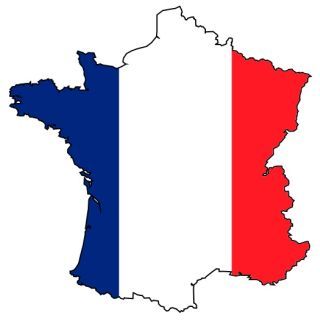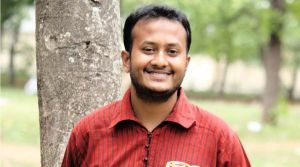
Publisher:
Bonnie King
CONTACT:
Newsroom@Salem-news.com
Advertising:
Adsales@Salem-news.com

~Truth~
~Justice~
~Peace~
TJP
Jan-21-2013 16:51

 TweetFollow @OregonNews
TweetFollow @OregonNews
Human Rights Ambassador William Gomes Calls for Marriage Equality in France
Letter by William Gomes Salem-News.comIn France’s foreign policy these fundamental principles in relation to sexual orientation and gender identity play an important role.
 |
(YORK, UK) - Human Rights Ambassador William Nicholas Gomes is concerned that France, traditionally a socially liberal country regarding lesbian, gay, bisexual, and transgender (LGBT) rights, is now maintaining more conservative stances such as the non-recognition of same-sex marriage.
 |
Mr. Gomes explains that in December 2006, an Ipsos-MORI Eurobarometer survey conducted showed: 62% support same-sex marriage, while 37% were opposed. 55% believed gay and lesbian couples should not have parenting rights, while 44% believe same-sex couples should be able to adopt.
In June 2011, an Ifop poll found that 63% of respondents were in favour of same-sex marriage, while 58% supported adoption rights for same-sex couples. Over five years, the percentage of French citizens supporting gay and lesbian marriage grew by one percent.
This letter written by Human Rights Ambassador William Nicholas Gomes, to the members of French National Parliament on the eve of parliamentary debate, regards their support of marriage equality in France.
| “ |
Dear member of the French National Parliament, I am William Nicholas Gomes, Human Rights Ambassador for Salem-news.com. I am adding my voice the concern shared by Boris O. Dittrich, Advocacy director, LGBT Rights Program,Human Rights Watch.
On the eve of your parliamentary debates regarding whether to support marriage equality in France, I invite you to look to another European country that went through the same discussions and soul-searching about 15 years ago.
In 1994, as a member of the Dutch parliament, I proposed to introduce marriage equality legislation. Years of debate ensued, in part because nowhere else in the world had such legislation been introduced.
Several of the arguments that were used in the Netherlands against same-sex marriage have also come up in the French public discussions, and I think it is worthwhile sharing the Dutch experience with you.
The first argument used against my proposal was that marriage between two people of the same gender did not exist anywhere in the world and that if the Netherlands introduced same-sex marriage, the rest of the world would openly mock us. That argument cannot be used any more since 10 countries have followed suit and opened their civil marriages to same-sex couples. Several states in the United States and Mexico have also implemented such legislation. Also, predominantly Catholic countries such as Argentina, Portugal, and Spain have since allowed such marriages. Politicians in those countries withstood pressure from leaders of the Roman Catholic Church to vote against their marriage equality bills stating that a separation between church and state should be maintained.
The second argument that was often used against marriage equality was based on religious beliefs, according to which only a marriage between a man and a woman could be recognized. The naysayers argued that the introduction of same-sex marriage would diminish the importance of the traditional concept of marriage as between a man and a woman. This argument failed since religious marriage continues to exist alongside civil marriage.
The legal reform in the Netherlands broadened the scope of civil marriages, as the proposed reform in France would do. Freedom of religion means that religious denominations have the right to exclude same-sex couples from wedding ceremonies within their churches, synagogues, or mosques. The state, however, is bound by principles of non-discrimination and equal treatment, fundamental rights long-recognized in France.
Lastly, I would like to mention the argument that raising children in a same-sex marriage would harm them. This argument was not based on facts. At the time of the debate in the Netherlands thousands of children had already been born and raised in households of two people of the same gender. Surveys and academic research done by universities have shown that children benefit from a loving environment and that the sexual orientation of their parents is not decisive for their well-being. In the almost 12 years since marriage equality was recognized in the Netherlands no data have been published to show that children growing up in a same-sex household suffer because they are not raised by an opposite-sex couple.
Since the first same-sex marriages in 2001, annual surveys of public opinion have been carried out, and they indicate that marriage equality has been accepted by a large majority of Dutch society. Essentially, it has become a non-issue. Now in the Netherlands, people are used to seeing two persons vowing to take responsibility for one another and support each other. Their gender is not considered relevant.
Even political parties that voted against the bill declined to attempt to change the law when they came into power. We’ve seen many opponents of the same-sex marriage law change their minds. One well-known example is Hannie van Leeuwen, who, as a Christian-Democratic senator at the time of the parliamentary debates, was a fierce opponent of same-sex marriage. In 2005 she publicly said, “At the time I opposed same-sex marriage, I was led by fear. Having seen so many gay and lesbian couples getting married, I realize I was wrong. I don’t understand anymore what made me treat gays and lesbians differently from other citizens.”
It is not only in the Netherlands that politicians across the political spectrum have stood up in support of same-sex marriage. In October 2011 British Prime Minister David Cameron spoke at the Conservative Party’s conference in Manchester:
"We’re consulting on legalizing gay marriage. To anyone who has reservations, I say: Yes, it’s about equality, but it’s also about something else: commitment. Conservatives believe in the ties that bind us,that society is stronger when we make vows to each other and support each other. So I don’t support gay marriage despite being a Conservative. I support gay marriage because I’m a Conservative."
In Belgium, where marriage equality was introduced almost 10 years ago, Prime Minister Elio diRupo stated in January 2013, “I am proud of our country where all couples have the right to marry.”
Put simply, political leaders around the world are coming to realize that gays and lesbians are not a separate group with a different sexual orientation. Rather, they are our sons and daughters, our brothers and sisters, our fathers and mothers, our friends and neighbors. Gays and lesbians are integral parts of our families and our societies.
The eyes of the world are on your upcoming parliamentary debate and vote. France is seen by the rest of the world as a country that supports the right to non-discrimination and equal treatment. In France’s foreign policy these fundamental principles in relation to sexual orientation and gender identity play an important role. Rightly, France is proud of its commitments to international human rights standards and the international treaties that it has ratified, such as the International Covenant on Civil and Political Rights, the Covenant on the Rights of the Child, and the Convention on the Elimination of All Forms of Discrimination against Women, which all include protection against discrimination.
I urge you to do the right thing and vote for marriage equality and non-discrimination and join the group of countries that have already opened their civil marriage law to people of the same gender. | ” |

Salem-News.com Human Rights Ambassador William Nicholas Gomes is a Bangladeshi journalist, human rights activist and author was born on 25 December, 1985 in Dhaka. As an investigative journalist he wrote widely for leading European and Asian media outlets.
He is also active in advocating for free and independent media and journalists’ rights, and is part of the free media movement, Global Independent Media Center – an activist media network for the creation of radical, accurate, and passionate telling of the truth. He worked for Italian news agency Asianews.it from year 2009 to 2011, on that time he was accredited as a free lance journalist by the press information department of Bangladesh. During this time he has reported a notable numbers of reports for the news agency which were translated into Chinese and Italian and quoted by notable number of new outlets all over the world.He, ideologically, identifies himself deeply attached with anarchism. His political views are often characterized as “leftist” or “left-wing,” and he has described himself as an individualist anarchist.
 |
 |
Articles for January 20, 2013 | Articles for January 21, 2013 | Articles for January 22, 2013
Quick Links
DINING
Willamette UniversityGoudy Commons Cafe
Dine on the Queen
Willamette Queen Sternwheeler
MUST SEE SALEM
Oregon Capitol ToursCapitol History Gateway
Willamette River Ride
Willamette Queen Sternwheeler
Historic Home Tours:
Deepwood Museum
The Bush House
Gaiety Hollow Garden
AUCTIONS - APPRAISALS
Auction Masters & AppraisalsCONSTRUCTION SERVICES
Roofing and ContractingSheridan, Ore.
ONLINE SHOPPING
Special Occasion DressesAdvertise with Salem-News
Contact:AdSales@Salem-News.com



Salem-News.com:
googlec507860f6901db00.html
Terms of Service | Privacy Policy
All comments and messages are approved by people and self promotional links or unacceptable comments are denied.
[Return to Top]
©2026 Salem-News.com. All opinions expressed in this article are those of the author and do not necessarily reflect those of Salem-News.com.